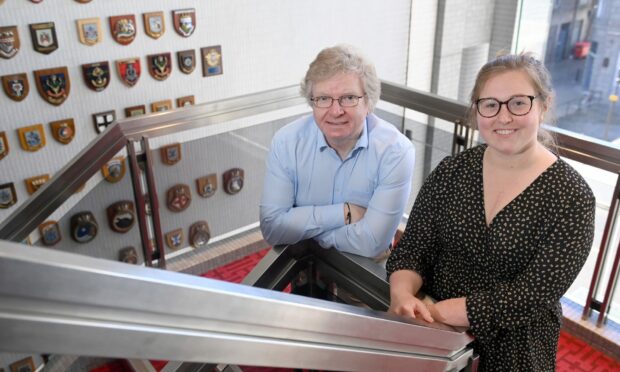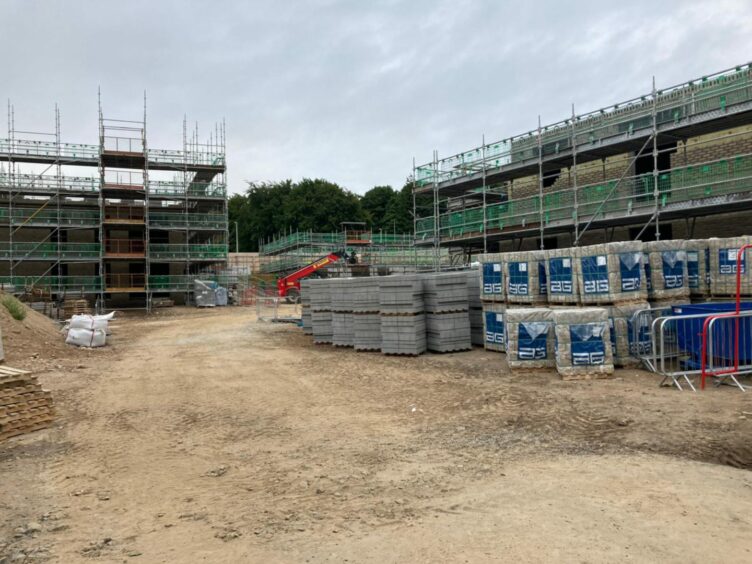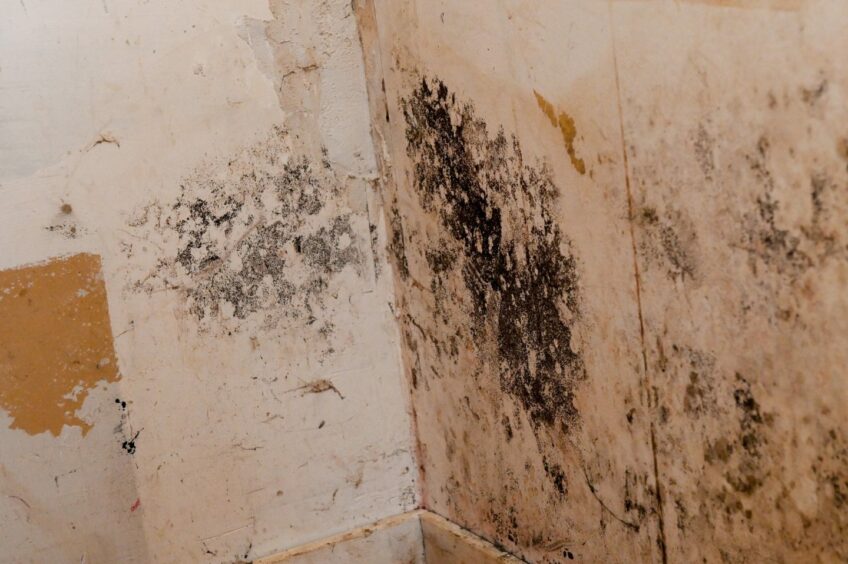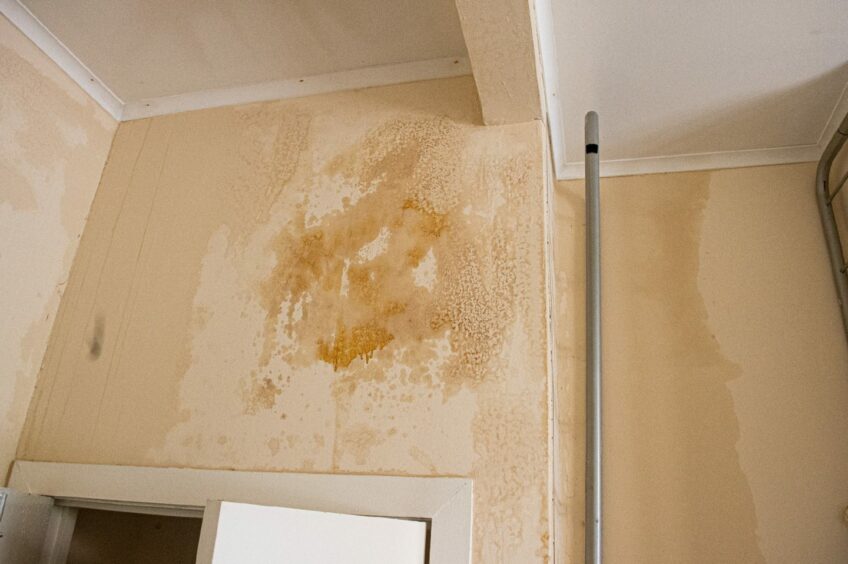Aberdeen City Council leaders say they are committed to improving and building social housing across the city.
In Aberdeen, around 4,500 families and individuals are on the waiting list for social homes. Although this number fluctuates, some have been on the list for years.
There is a need for good-quality, affordable social housing across the city, and there has been for a long time.
Ahead of the elections, Shelter Scotland was campaigning for more social homes across the country and launched a petition urging candidates to prioritise housing.
Ian Yuill, now co-leader of the council, attended the campaign and pledged to do more.
Speaking to The Press and Journal, alongside operational delivery convener Miranda Radley, Mr Yuill assured housing is one of the key priorities for the new partnership.
He believes all parties want to ensure there is the right mix of housing for people in Aberdeen.
Mr Yuill: “This is not going to be an overnight fix, and we have some short-term challenges because of the rapid rate of inflation right now, but we’re committed to tackling this and providing the homes people need.
“If people are in a decent quality home, it helps with domestic issues they have, it helps with social issues, education for kids, it just goes on and on.
“It’s a win not just for the family, but it’s a win for our city and everybody.”
‘Tenants are key’
The council has “ambitious” plans to create homes, from more flats to houses with two to four bedrooms, or even more accessible homes to meet specific needs.
They are keen to work with housing associations and will also buy back council homes, or even private homes, to speed up the process.
However, Mr Yuill explained providing good quality homes, that are suitable and accessible will take a number of years, with the investment being spread out.
He said: “Tenants are key to this because ultimately that’s what it’s about, it’s not about targets for building council homes, the objective is the right home, at the right time, for the right person.”
The council co-leader made it clear the work was not just starting with the new partnership, but rather they were picking up from the previous administration.
But, what about the social homes already in use across the city?
‘It’s clearly unacceptable’
Our freedom of information request found Aberdeen City Council failed to investigate all complaints of mould and damp made by their tenants since 2016.
Over five years, the local authority received 122 complaints, with investigators being sent to deal with 91 of those – meaning 31 homes were left with the issue.
“It’s clearly unacceptable,” Mr Yuill said. “I’m sure this is something nobody would argue with but nobody should be living in a damp home, nobody should be living in a home with mould.”
Aberdeen City Council owns over 22,000 social homes, meaning a small proportion of tenants have reported issues with mould and damp.
Meanwhile, across the same period, Aberdeenshire Council received over 2,500 reports of mould and damp.
Addressing this, Mr Yuill said: “The numbers may not be big, but it’s a big issue for every family and every individual involved.
“Apart from it being unpleasant, there are health issues with both mould and damp so it’s important they’re tackled.”
He stressed the council is being proactive to stop the issue – like the previous administration was – and the housing stock is continually being improved.
Ms Radley agreed and added it’s important anyone who has an issue with their housing report it to the council
She said: “I would very genuinely encourage anyone who has an issue to come and speak to councillors, their housing officers, or report it to the housing repairs.
“If we don’t know about something, we can’t fix it.”
If you have experienced any problems with mould or damp in your social home, let us know about it in the comment section below.
Claims council isn’t person-centred?
Last year, Shelter Scotland claimed Aberdeen City Council’s approach was not person-centred.
The administration has been working towards engaging with tenants and making their social homes work for the people living in them.
Both Mr Yuill and Ms Radley said this was something the new partnership is committed to continuing and progressing.

Ms Radley explained the council will move to choice-based letting to allow more flexibility in the types of properties tenants can look at.
This means the local authority will move away from tenants being offered unsuitable homes and being pushed to the end of the waiting list when they refuse.
She said: “I think listening to tenants is really important, also listening to communities – what housing is needed within communities, what can we do to engage with them and our tenants to ensure any new housing is suitable and has the right facilities.
“What we need to remember when we’re dealing with the housing waiting lists, yes that’s numbers on a list, but that’s people without a home, people who don’t feel like they’re in a suitable home, and we really need to personalise this.
“It’s about changing the outlook of housing, you’re not given council housing, it’s about ensuring that’s the right decision for you.”
Minimising temporary accommodation
Mr Yuill explained temporary accommodation is only meant to help people who suddenly find themselves in need of a home.
He wants to get to a point where there is the “absolute minimum” use of it because it can be disruptive to families and individuals.
The co-leader said: “We’re keen we provide as much social housing as needed for the people in Aberdeen because that’s what they deserve, this is not an added extra.
“Obviously, the more council homes we have the easier it is to find people accommodation. Temporary accommodation is not great, the hints in the name, it’s temporary.”
Ms Radley agreed: “It comes back to the idea of the right home at the right time for the right person, and that is something we are committed to.
“For some people, it might be the right option for that moment, but it’s definitely not long-term.
“It’s about ensuring we’ve got that mix so we can put people into the right place at the right time.”
Working to help tenants with fuel poverty
The council is working on making all homes as energy-efficient as possible to keep the bills down. Some council homes are even supplied with heat and power.
Between 2016 and 2018, it was estimated that 48% of social tenants in Aberdeen were in fuel poverty.
People across Scotland will face record-breaking energy bills this winter, forcing them to make tough decisions.
Mr Yuill reassured the council will do what it can to help, including even opening public buildings as “warm banks”.
“I don’t want to over-dramatise this but it’s frightening,” he said.
“Frightening for the individual, but it’s frightening for our city and country.”

The co-leader stressed the issue requires action from the UK Government, and has called for the government to rise to the challenge the same way it did during the pandemic.
He said: “They need to provide the funds necessary now to make sure we do not have people in Aberdeen, in Scotland, across the UK who are genuinely making a choice between heating and eating over the winter – or even worse not being able to do both.”
Ms Radley offered practical advice to tenants facing fuel poverty.
She highlighted the council’s financial inclusion team, encouraging anyone facing hardship to contact the team and check they are claiming the right benefits.
Citizens Advice Bureau, supported by the council, also provide similar services.
Ms Radley stressed that if any tenants are struggling to pay for their housing costs they should speak to their housing officer as early as possible.
“We’d rather know sooner rather than six months down the line when you’re at crisis point,” she finished.




Conversation